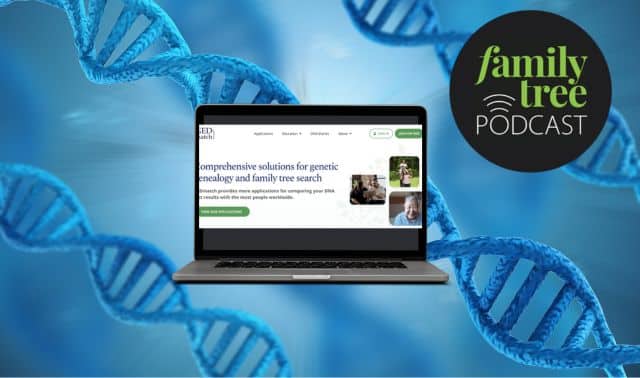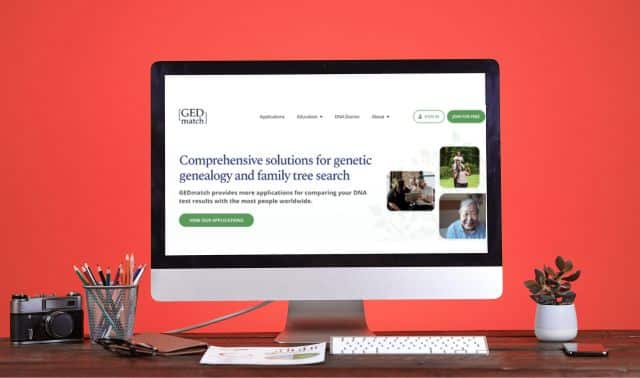Sign up for the Family Tree Newsletter Plus, you’ll receive our 10 Essential Genealogy Research Forms PDF as a special thank you!
Get Your Free Genealogy Forms
"*" indicates required fields
Genealogical Reforecast?
I wanted to make a comment about the September 2007 issue’s “Record Highs (and Lows).” I certainly agree with the Storms Ahead section in regards to Russian and Polish research, as I have both. But I take issue with English records being No. 1 in the Sunny Outlook section. Many records are available if you have ancestors in some parishes in England — I have done research in Wales and Cornwall. But there isn’t enough identifying information available on the records themselves. With so many common names, the information just isn’t enough to be sure a record pertains to your family.
On the other hand, records in Germany are very well-documented. Even though you have the language difference, I’ve been able to learn to read the vital information I need, and the records from 1810 on are in a preprinted form (thanks to Napoleon). So I would say the German records really should be considered at least No. 2.
Carole Lubbers
Marietta, Ga.
First let me express how much I enjoy Family Tree Magazine. I read it from cover to covet Just a little comment on the Dutch Genlias site <www.genlias.nl> you listed in “Record Highs and Lows.” It’s helpful to know that in Dutch records, you must leave off the Van, Vander, De, Den and so forth when you enter the last name in a database search. For example, De Graaf should be entered as Graaf, and van den Berg as Berg. In addition, females are always listed under their maiden name, even on their death records.
Janet Sjaarda Sheeres
Grand Rapids, Mich.
Perhaps researching Polish ancestors isn’t as difficult as David A. Fryxell implied in “Record Highs and Lows.” Let me assure him and other readers that many resources await the Polish researcher.
Among many available and informative books, Polish Roots by Rosemary Chorzempa (Genealogical Publishing Co.) is outstanding.
Polish genealogy Web sites also continue to grow and develop. PolishRoots <www.polishroots.com> provides all kinds of information, a newsletter, and databases. Posen <www.posen-l.com> has a mailing list, surnames, researchers and various church districts, including information about more than 6,000 towns with Catholic church records in Poznan province. The Poznan Marriage Project <www.discovering-roots.pl/poznan_project/project.htm> is approaching 150,000 extracted marriage records from 1835 to 1884, with contact information and details about tour guides and researchers who live in Poznan.
Then the Index of Polish Marriages Until 1899 <www.przodkowie.com/metryki/en.php> offers more than 51,000 marriage records extracted from the Russian partition of Poland. The 1793-1794 Land Records of South Prussia Web site <genealogy.drefs.net/lntroduction.htm> covers 83 volumes of land records that will delight the serious Polish researcher. Finally, Mary’s Genealogy Treasures <www.telusplanet.net/public/mtoil/poland.htm> offers a categorized list of links to more 150 Web pages with databases, maps, records, immigration information and more. Happy hunting.
Joseph F. Martin
Romeoville, III.
Podcasts, Take Two
The September issue arrived yesterday, and being a genealogy podcaster myself, the article on podcasting by Linda McMaken caught my eye. I appreciate my Web site <www.genealogygems.tv> being listed.
Podcasting is a bit more complicated than it sounded in the article, though, and the fourth step includes an error Podcasters don’t “post” or “store” their MP3 files on any of the Web sites listed. These are “podcatching” sites that connect to your podcast feed. Podcasters must pay to host their files, either on their own Web sites (as indicated in the article) or on a paid service such as Libsyn <www.libsyn.com> (also mentioned). If you upload them to your own site, you will need to know how to code your own RSS feed or, more likely, run the feed through a free site such as FeedBurner <www.feedburner.com>.
As an experienced podcaster, I highly recommend first-timers use Libsyn. It takes care of a lot of the process for you. In addition, I caution against posting your feeds to iTunes <www.apple.com/itunes/store/podcasts.html> or Yahoo! <podcasts.yahoo.com/publish> until you’re absolutely sure you want the entire world to have access to them — and you’ve secured the permission of everyone in your recordings. By giving friends and family access to your Libsyn account, they’ll be able to listen to your audio shows, and you can retain control.
Lisa Louise Cooke
via e-mail
From the January 2008 issue of Family Tree Magazine
ADVERTISEMENT




